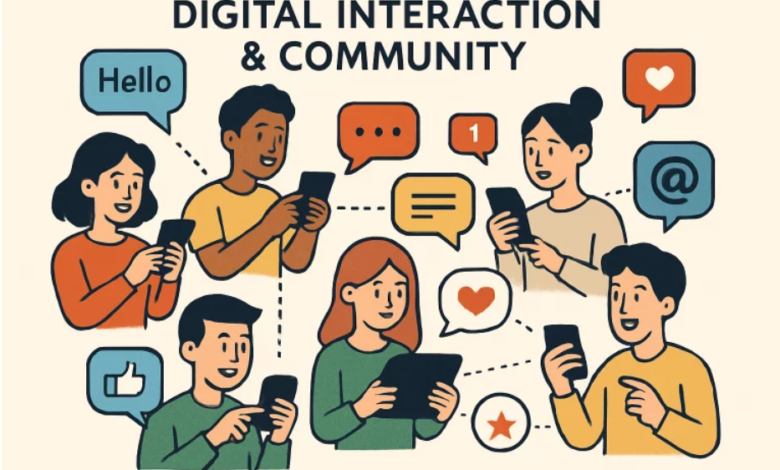How Social Media Campaigns Influence Modern Branding

Expanding Brand Reach Through Social Media
Social media platforms have transformed the very foundations of brand marketing, shifting it from localized or regional campaigns to a truly global scale. Today, organizations can effortlessly extend their influence past traditional boundaries, thanks to platforms boasting audiences of billions. Facebook, Instagram, TikTok, and other popular networks grant brands instant connectivity to diverse demographics and markets worldwide. DataReportal reports that a staggering 70.1% of the U.S. population were active social media users as of January 2024, underscoring the significant role that social platforms play in the brand discovery process. In this expansive landscape, brands no longer rely on massive budgets or decades-old reputations; instead, they can capitalize on creative, well-timed campaigns to reach local and international consumers. For brands aiming to tap into this vast potential, working with specialized agencies such as Socialistics can make the difference by developing tailored strategies that foster sustainable visibility and long-term growth.
Social media has revolutionized brand exposure, making global recognition accessible to any brand with a smart strategy and authentic voice. This unprecedented connectivity has not only leveled the playing field for large corporations and multinational brands but also opened the door for startups and small businesses to make an impact. By crafting compelling content, brands can achieve remarkable reach in hours, fostering a global competition for consumer attention.
See also: How Technology Is Modernizing Tribal Government Software
Building Authentic Connections
In today’s digital age, consumers demand more than just brand visibility. They demand transparency and authenticity, driven by a new generation of socially conscious and digitally savvy users. Brands that create behind-the-scenes content, employee spotlights, and user-generated posts humanize their businesses and cultivate trust. For instance, Glossier has built a powerful community by listening to customer feedback and inviting followers into product development conversations. Brands must actively listen, respond, and adapt to consumer voices to encourage loyalty and lasting advocacy.
Storytelling is essential for forging authentic relationships, as shared experiences, alignment with social causes, and transparent communication resonate deeply with audiences. Community-centered initiatives, such as interactive live streams, Q&A sessions, and public acknowledgment of loyal customers, spark connections and reinforce a sense of belonging. Building digital spaces where individuals are heard and valued transforms casual followers into enthusiastic supporters willing to amplify their message further. Social media becomes a lively community hub, where deep human connections flourish and lasting brand affinity is built.
Leveraging Data-Driven Strategies
Social media marketing offers a wealth of actionable, real-time data that allows brands to monitor engagement metrics, audience interests, demographics, and trending topics with unprecedented accuracy. This transforms social media branding from intuition-based efforts to finely tuned, results-driven campaigns. The secret to successful branding in the digital age lies in continual adaptation. Brands can discover consumer preferences and behaviors by leveraging tools like sentiment analysis, click-through rates, engagement patterns, and hashtag usage. This allows marketers to focus instantly on high-performing content, experiment with different messaging, and adjust targeting parameters. Instances provide expert support to ensure consistent, meaningful branding outcomes.
Influencer Partnerships and Their Impact
Influencers have become mainstream powerhouses in branding, fostering communities around shared interests like fashion, fitness, technology, or lifestyle. By leveraging influencer partnerships, brands can reach these audiences personally and genuinely for consumers who are skeptical of corporate messaging. Influencer partnerships offer the human touch demanded by modern branding, amplifying campaign reach and boosting brand credibility and conversion rates. The most effective influencer campaigns are built on shared values and creative freedom, empowering partners to tell authentic stories in their voice. Research consistently shows that well-managed influencer marketing can generate an 11x higher return on investment than traditional channels, driving engagement and revenue. These partnerships cultivate brand credibility, especially when trust and relatability are top priorities.
Real-Time Engagement and Responsiveness
In today’s fast-paced, always-on world of social media, brands must adapt to the demands of consumers who expect prompt responses to inquiries, feedback, and complaints. Real-time engagement on social media demonstrates a brand’s commitment to customer care and resolving issues. This proactive approach protects a brand’s reputation and prevents minor negative experiences from spiraling into larger crises. Brands can also participate in larger conversations and trending moments, contributing witty remarks, viral challenges, memes, hashtag campaigns, and cultural discussions. However, this strategy carries risks and requires marketers to understand the brand’s identity. With deep, careful planning and constant vigilance, real-time participation can drive extraordinary brand growth and viral success.
Challenges in Social Media Branding
Social media branding offers numerous benefits but presents challenges such as oversaturation, negative feedback, misinformation, and public criticism. Evolving algorithms and changing content distribution across social networks further complicate the landscape. To overcome these challenges, brands must stay true to their voice, focus on high-quality content, and proactively manage their online reputation. They should stay informed about user behavior and algorithm changes, and tailor messaging for resonance and impact. Leveraging expert advice, industry best practices, and resources like the Hootsuite social media branding guide can equip brands with the knowledge needed to adapt and thrive in an often volatile social landscape.
Future Trends in Social Media Branding
The rapid evolution of social media is presenting new branding opportunities and challenges. Social commerce integrates shopping capabilities into social feeds, reducing friction between discovery and purchase. Augmented reality (AR) features enhance user engagement and brand interaction, creating memorable experiences. Artificial intelligence powers personalized content, enabling brands to deliver tailored advertisements and offers at scale. To remain competitive, brands must stay ahead of emerging technologies and experiment with novel content formats, such as interactive videos and shoppable posts. Advanced analytics, data interpretation, and influencer strategies, guided by professional agencies, will help brands maintain a dynamic presence and strengthen audience bonds in the digital landscape.
Conclusion
Social media campaigns now lie at the very core of what successful branding means in the digital age. They empower brands to authentically engage audiences, utilize powerful analytics, act on real-time feedback, and innovate continuously by prioritizing transparency, building vibrant communities, and embracing new technologies. Brands not only foster lasting relationships but also establish a position as leaders in a rapidly shifting market. For a deeper understanding of how to craft winning strategies, expert-driven agencies are invaluable allies in navigating and thriving in the ever-evolving social media landscape.




